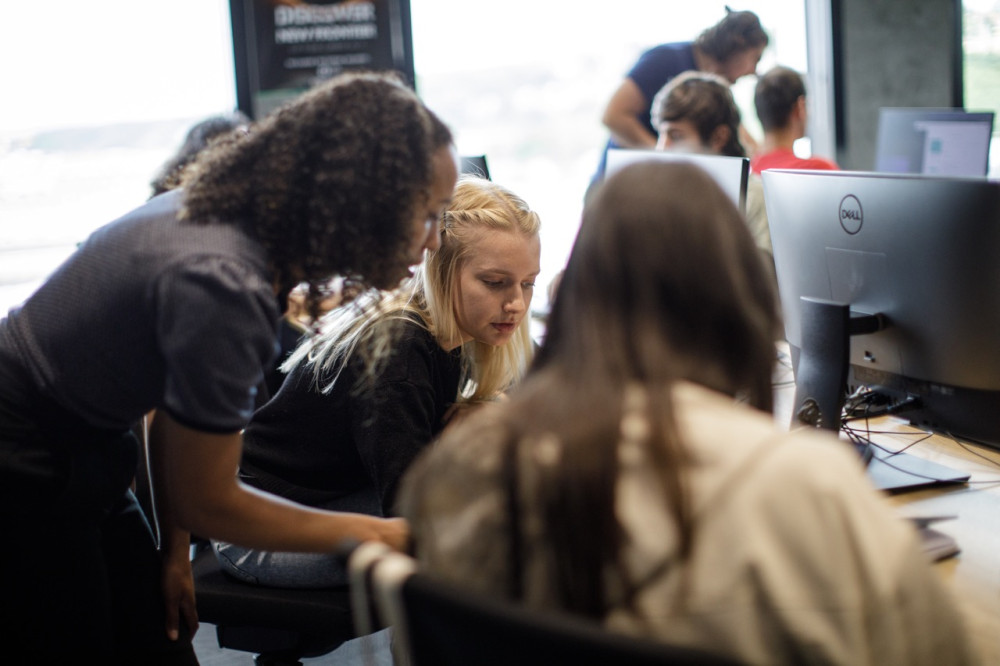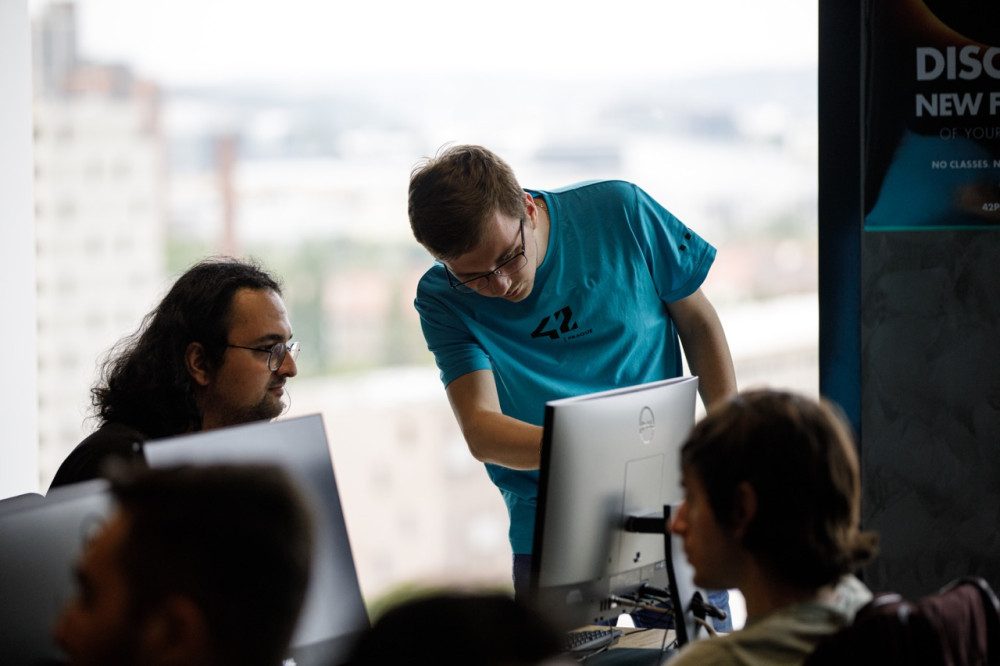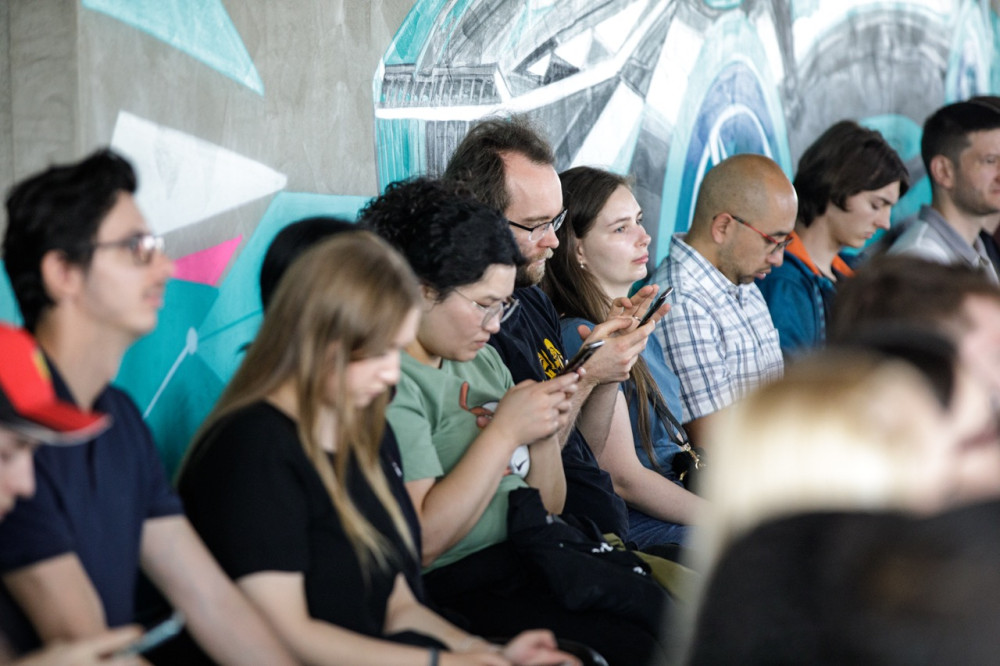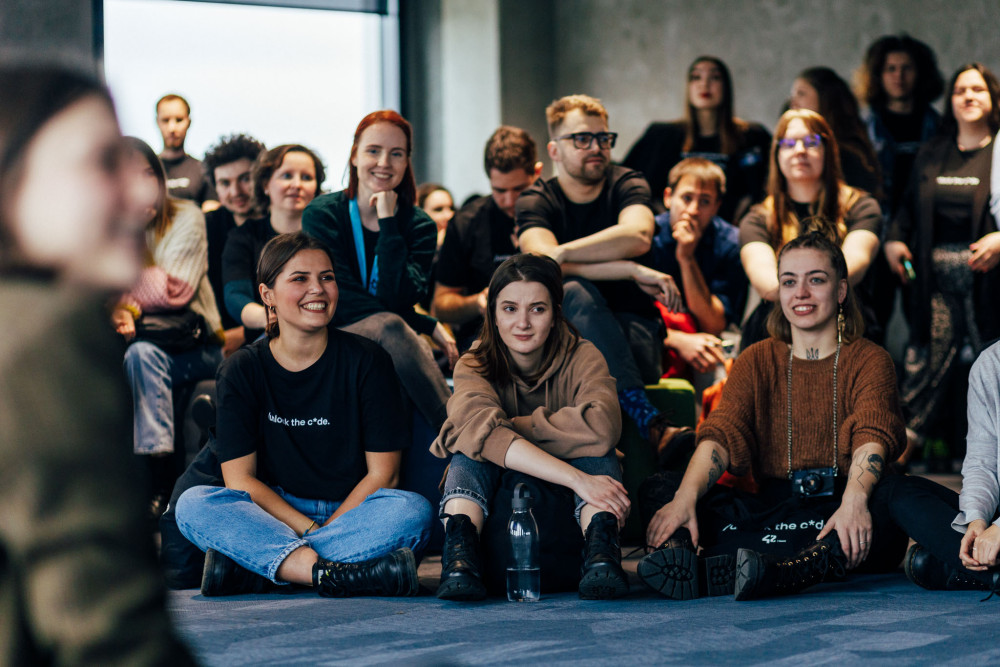
Following our recent interview with Michaela Bauer, ČSOB’s Chief Technology, Innovations, Digital, Data, and Operations Officer, we bring you her insights on the ever-evolving IT landscape, emphasising the importance of diverse educational approaches and the growing role of women in technology.

Let’s start with an overarching question. Looking five years ahead, what significant changes do you foresee in IT and education?
"In the next five years, we at ČSOB are envisioning a significant transformation in the IT landscape, with a particular focus on the modernization of IT architecture. This is a critical theme across various corporations, including banks, as the rapid evolution of technology leads us in directions for which our legacy systems are not fully prepared. No matter when the last update was, the pace of technological advancement necessitates continuous modernization to stay relevant and efficient.
Another critical area is the emphasis on the quality and education of employees. The technology we invest in is vital, but the people who operate and manage these systems are equally important. In the future, we see a blend of investing in advanced technologies and in the people who control them. With this dual focus, the systems will function optimally. Quality employees can work wonders with older systems, while the latest technologies may underperform without skilled personnel.
Artificial Intelligence, specifically within IT, presents its unique challenges and opportunities. It's not just about implementing AI technologies but also about navigating the accompanying regulatory and legal landscapes. And honestly, AI’s successful deployment will largely depend on resolving these regulatory and legal challenges rather than implementing new technological standards."

You mentioned that having educated staff is a necessity. However, the Czech Republic needs more IT workers. Does that mean that there are plenty of opportunities for, let’s say, career switchers?
"IT has evolved into a more diverse and inclusive field in the past few years, making it more accessible for career switchers. Regardless of whether there is a demand, the industry now values a range of skills, not just technical proficiency. This evolution means that the barriers to entering IT are lower than ever. The perception of IT being a field reserved only for those with a technical background is rapidly changing. As I mentioned, the industry now requires a blend of skills, including creativity, problem-solving, and the ability to approach technical issues from broader perspectives.
At ČSOB, we've observed that individuals from diverse educational backgrounds bring unique strengths and perspectives to IT roles, so that I can speak on this from personal experience. They contribute to a more dynamic and innovative working environment, challenging the status quo and driving forward new ideas. As the IT field becomes more interdisciplinary, there's a growing recognition that skills developed in other careers can be valuable assets in IT. This shift is essential for the industry's continued growth and adaptation to the ever-changing technological landscape."

Building on your answer, what role does gender representation play in the industry, and do you think any stigmas are attached to it?
"Fortunately, I would say that the issue of gender representation in IT is getting less complex or nuanced. While stigmas may still exist, they are increasingly considered outdated and unnecessary. Reflecting on the traditional mindset, there's a tendency to associate technical education and interests more with boys than girls from a young age. This early divergence often leads to a disparity in specialised fields, where fewer women than men pursue these areas. However, the definition of IT has evolved dramatically over the past decade.
In the past, IT roles were often narrowly defined as programmers or network specialists. Today, as IT democratises and becomes more user-friendly through various tools, the requirement for purely technical skills is not as pronounced. It can sometimes be a limitation. Women, often stereotypically credited for their creativity and ability to see technical issues in a broader context, are now finding more opportunities in IT. These skills are increasingly valuable as IT integrates more closely with business and other non-technical areas.
The modern IT landscape requires professionals who can act as 'translators' between the technical and business worlds, bridging gaps and facilitating understanding. Women excel in these roles, bringing unique perspectives and skills that enhance collaboration and innovation. This shift signifies a growing recognition of women's diverse talents and approaches to IT, moving beyond traditional stereotypes to appreciate the broader contributions they make to the field."

Can you elaborate on ČSOB's initiatives for IT talent development and your expectations for collaborating with 42 Prague?
"We are actively pursuing a comprehensive approach to IT development, including internal initiatives and collaborations with educational and developmental organisations. Namely, our partnership with Czechitas, who is coincidentally also a partner to 42 Prague, is a testament to our commitment to fostering diversity in IT. We've observed that these collaborations are instrumental in encouraging more women to consider careers in IT by building their confidence and enhancing their technical skills. For instance, many of our male and female colleagues from the Operations division have participated in Czechitas courses. This training has directly contributed to our IT processes, offering a more practical approach than conventional methods and resulting in tens of new IT talents in our organisation.
As for our collaboration with 42 Prague, we have high expectations, particularly regarding internships. We anticipate interns from 42 Prague will bring unique skills shaped by their practical and self-motivated learning experiences. Their alternative educational background is expected to bring fresh perspectives and problem-solving abilities to real-world IT challenges. We're excited to see how this diverse educational approach translates into their performance and contributions to our ongoing projects.

As we conclude, what are your thoughts on the partnership between ČSOB and 42 Prague?
"I view our partnership with 42 Prague as a significant step towards enriching the IT landscape with diverse and well-rounded talent. As co-founding partners, we truly believe that this collaboration is not just about bridging the gap between education and the practical demands of the IT industry; it's about nurturing a new generation of IT professionals who are equipped with both the technical skills and the broader perspective necessary to thrive in today's fast-paced digital environment.
The 42 Prague educational model, which emphasises student-centred learning and a non-traditional approach, resonates with our philosophy at ČSOB. We're excited about this partnership because it challenges the conventional norms of IT education, focusing on developing skills beyond mere technical proficiency. The students of 42 Prague bring a unique blend of creativity, problem-solving abilities, and adaptability, essential qualities in the evolving world of IT. The synergy between ČSOB and 42 Prague in this partnership paves the way for a future where technology solutions are efficient but also inclusive and forward-thinking.
We're looking forward to seeing the positive outcomes of this collaboration, both in terms of the professional growth of the interns and the contributions they can make to ČSOB."